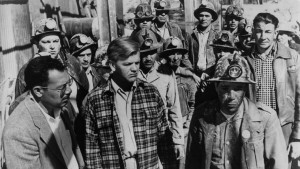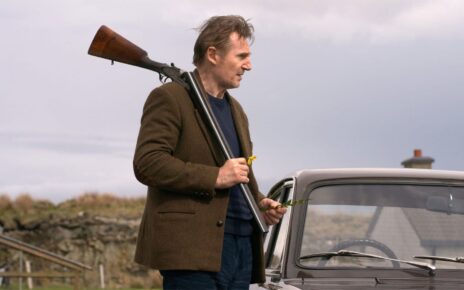Had I been forced to watch The Salt of the Earth as a child, I would have wept. I would have cried openly and unashamedly. You just tick off the child-unfriendlies one after another with this thing: subtitles, black & white, 80% still photographs, documentary, unscripted, plotless, dull, long, death-without-horror, pain-without-villain. All you need is a good dose of romance and tadpole Frog might never return to the theater. I remember being strong-armed to go see From Mao to Mozart: Isaac Stern in China as a young teen. I was bored silly; that was Willy Wonka & the Chocolate Factory compared to The Salt of the Earth.
Luckily, I’m not a child any longer. Well, age-wise at least. Part of the territory that comes with not being a child is developing patience and a strong stomach for over-indulgence. I do believe every single adult person on the planet should be exposed to the magnificent photography of Sebastião Salgado. This film gets a pass entirely because this work should be shared. Whether we needed to be exposed to it for two hours … I dunno.
The Salt of the Earth is the conclusion Salgado himself reached about humanity; he was constantly in touch with the common folk. He never missed an excuse to globetrot. In fact, I’m more than a little surprised his son, Juliano Ribeiro Salgado took on this project of documenting his father’s life – he’s not just a tad resentful of a father who spent his entire life focused on other people’s lives? “Mom, where’s dad?” “This year, he’s in the Sudan, I believe, filming atrocity –but it could be war crimes and ethnic cleansing in Bosnia; you know your father, what a card!”
That being said, more than once this documentary comes off as “wasn’t dad great!” Well, yes, if by ‘great’ you mean his work was great. The man knew how to capture the human condition, no question. If you mean ‘great’ as in Sebastião Salgado had a great life, you’re full of shit; he traveled and took photographs; he documented the fascinating lives of others, but his life? It was lived for him. It was lived in Brazilian gold mines and war-torn Rwanda and Ethiopian famine. It was t he faces of those doomed to die and many already dead. And Salgado’s conclusion – humanity sucks. We are an awful species. Is a better title “Salting the Earth?” For all Sebastião Salgado’s artistic glory, it doesn’t seem like he sees human beings as the least bit nurturing.
he faces of those doomed to die and many already dead. And Salgado’s conclusion – humanity sucks. We are an awful species. Is a better title “Salting the Earth?” For all Sebastião Salgado’s artistic glory, it doesn’t seem like he sees human beings as the least bit nurturing.
In the middle of this film, you showed me a full hour of photographs about man-made death in Africa; you came to the conclusion that humans are awful, and you want awards for this, do you? I think my favorite triviality here is the tacked final half hour about how the Salgados replanted their rain forest. Yeah, the millions of needless deaths suck, but there’s hope, people, 40% of the trees I planted survived!
As I say, Sebastião Salgado was a great artist. You should know his work. But this isn’t a great film.
Of talent, Sebastião was blessed
And it took him where life was stressed
So his son made good
And did all he could
To leave an audience depressed
Rated PG-13, 110 Minutes
D: Juliano Ribeiro Salgado, Wim Wenders
W: Wim Wenders, Juliano Ribeiro Salgado, David Rosier and Camille Delafon (it took four people to write a documentary. Hmmmmm)
Genre: Shaming
Type of person most likely to enjoy this film: Documentary category voters
Type of person least likely to enjoy this film: Children



